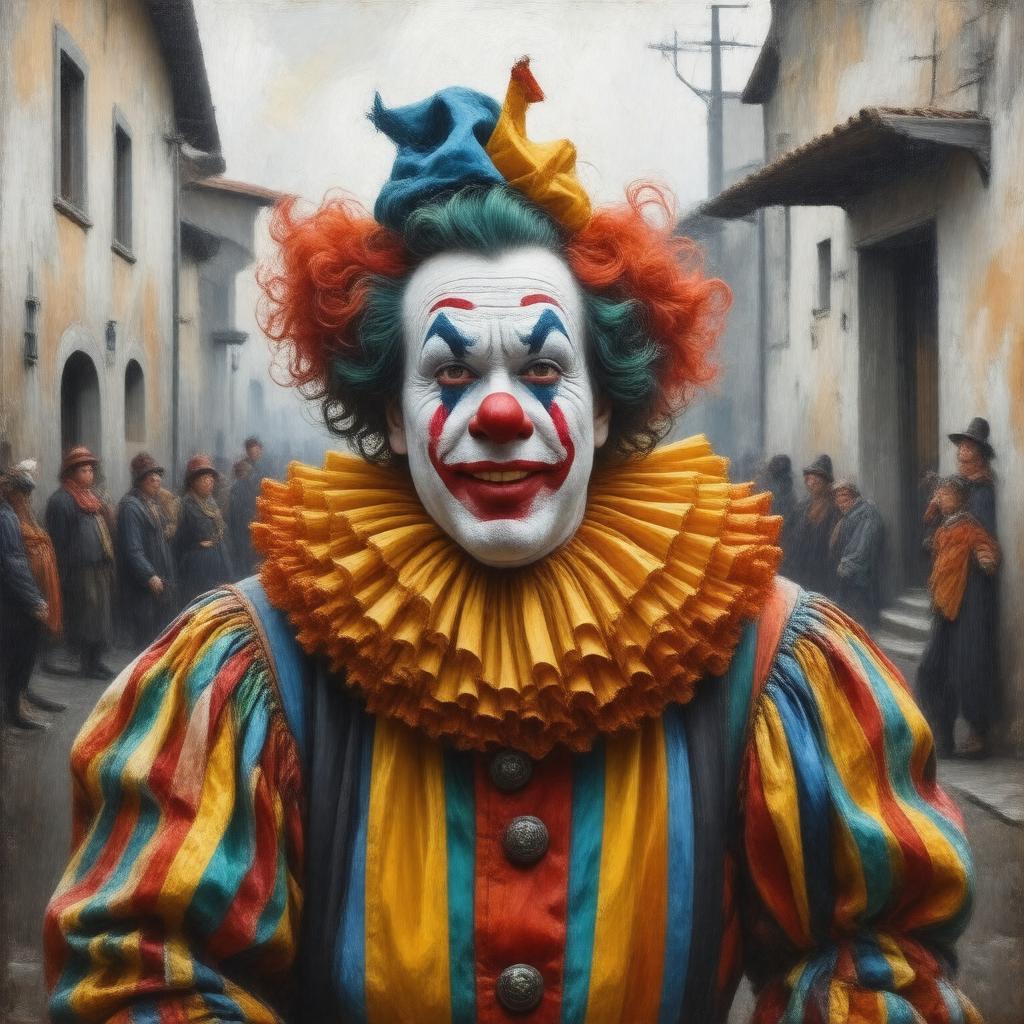Prompt
"Create an image of a poignant scene from the opera Pagliacci, set in a 19th-century Italian village. Depict Canio, a jestering clown, in the center, wearing a colorful costume and exaggerated makeup, with a mixture of sadness and anger on his face. In the background, a subtle hint of a village carnival or commedia dell'arte-style performance setting is visible. Incorporate elements that evoke the themes of jealousy, infidelity, and tragedy. The style should be reminiscent of a 19th-century Italian painting, with warm, muted colors and expressive brushstrokes."

